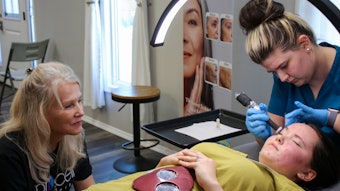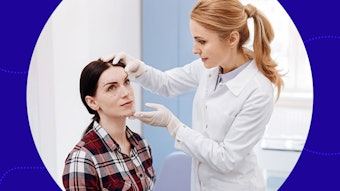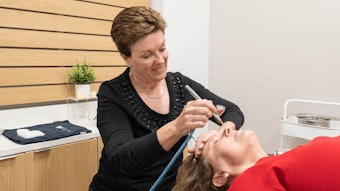
In the United States, one in eight women will be diagnosed with breast cancer, meaning that the disease in some way touches most of us. Being aware of the physical, mental and emotional changes women go through with a diagnosis of breast cancer and with the treatments for breast cancer can help support women through this challenging time.
Any type of cancer can affect a woman’s self-image, but surgery is often a treatment for those with breast cancer. She may have a portion or all of one or both breasts removed, and this can alter how she feels about herself. In addition, many of the chemotherapies and hormonal therapies can decrease a woman’s libido significantly. Finally, the psychological stress of having cancer, even once in remission, can affect a woman’s sex drive negatively.
With some empathy and knowledge of the latest therapies out there, providers can help survivors reclaim their femininity and confidence after breast cancer.
The Physical Change
Oftentimes, the hormonal treatments for breast cancer are hormone blockers leading to decreased estrogen which can affect the lining of the vagina. Low or absent estrogen levels reduce natural lubrication and the thickness of the vaginal tissue, which can lead to dryness and painful intercourse. In addition, even if women are not currently in treatment, they are often not able to use estrogen or other hormonal therapies for vaginal dryness.
Lifestyle management is vital during a cancer diagnosis and treatment. Reducing and managing stress and exercise and taking time for herself can all make a big difference in how a woman feels. The best thing women can do is talk about what we are going through and actively seek solutions. Vaginal dryness, decreased libido and painful sex can be addressed as new technological solutions exist.
The Emotional Struggle
Seeking support from family and friends, joining a breast cancer support group, seeing a therapist and possibly starting an antidepressant as needed are all viable and important options for clients to explore with their health provider. Women don’t have to travel this difficult journey alone, and options exist to manage many pieces of this puzzle. This is such an intense time in life for women, who are often still working, managing a household and possibly aging parents while managing their own significant health crisis. This can be exhausting and stressful, and it is important to seek out support and take down time as needed. Self-care is vital with a cancer diagnosis, which also provides a great opportunity for spa professionals. Help your clients achieve their self care to make this emotional struggle less traumatizing.
The Libido Boost
I recommend a home-use device that uses red light for improvement in sexual function. Most breast cancer patients are not able to use estrogen or other hormone based solutions for vaginal dryness and irritation. Devices like this are excellent alternatives to help with natural hydration.
Open Up the Conversation
The first step in helping women struggling with sexual health concerns after cancer is removing the stigma around speaking up about it. Women have been fighting intimate health issues alone. We need to encourage them to get comfortable talking about it and ultimately strive for personal care inside and out. Getting women to talk about these prevalent issues and ensure they know it is okay to talk about them openly is a big goal as a health care provider. The more technology advances and the more open we are as a society about women’s intimate struggles, the better we are able to treat our patients and make them feel whole again.











